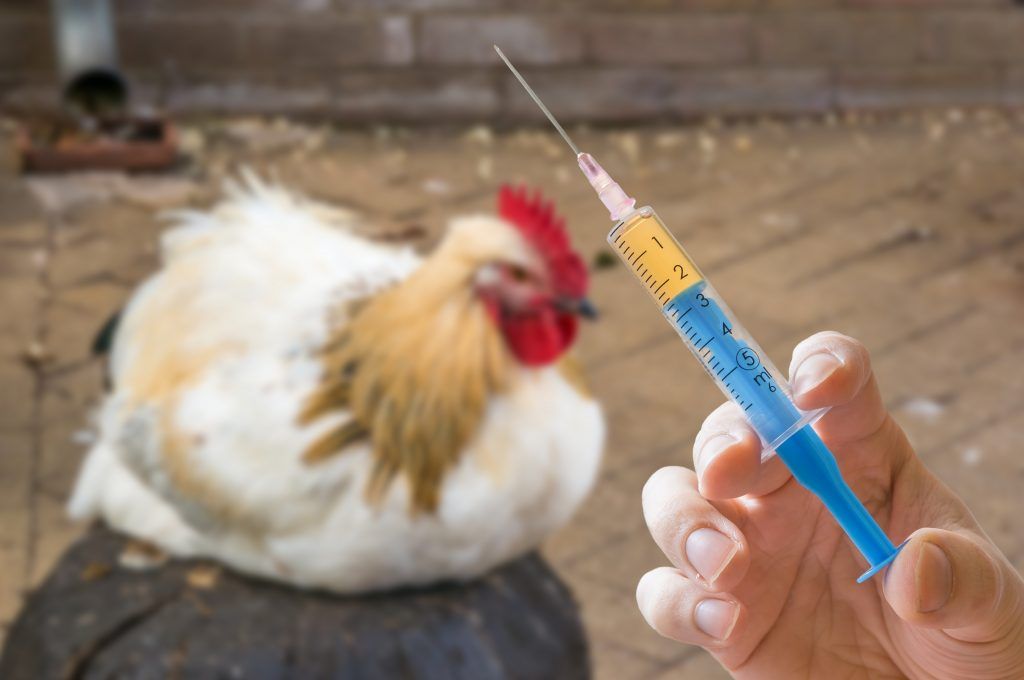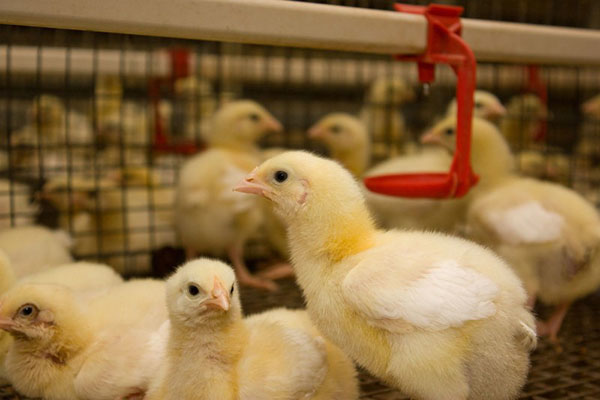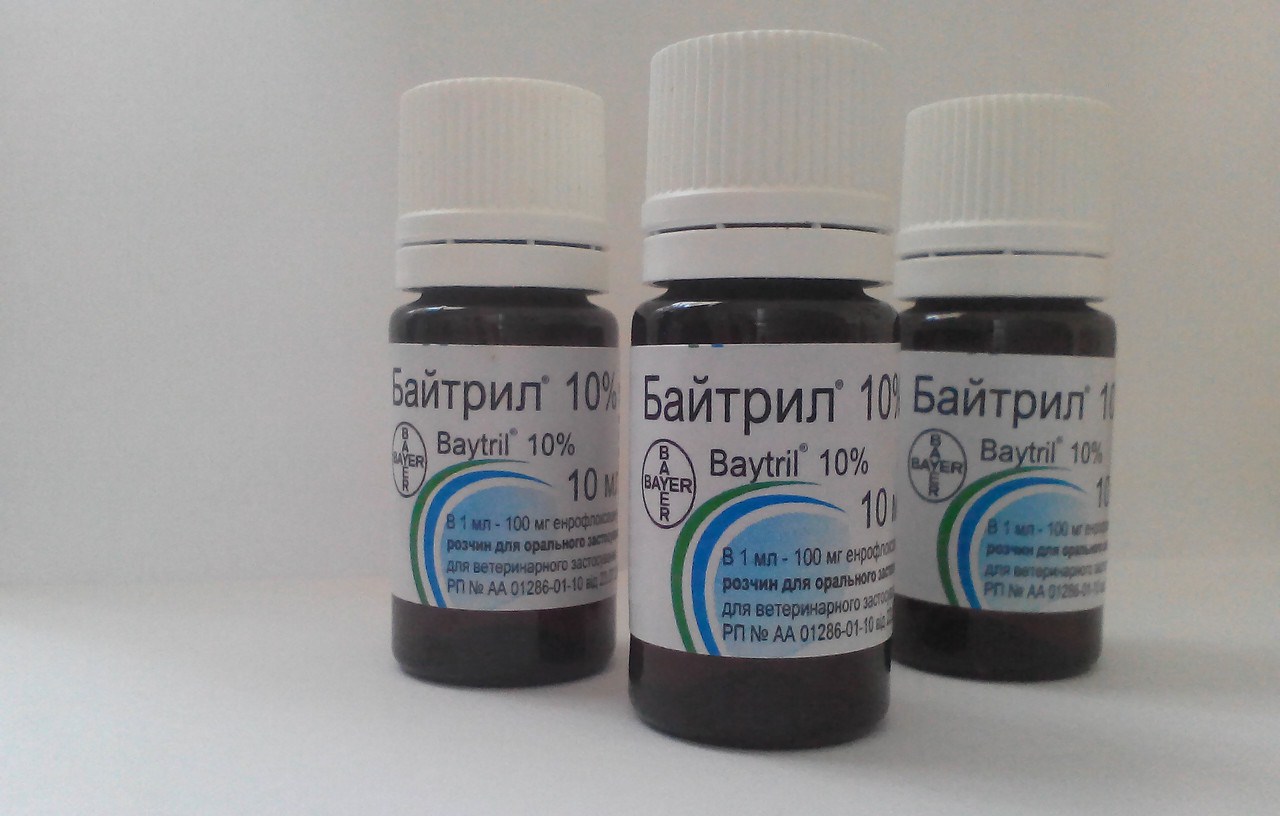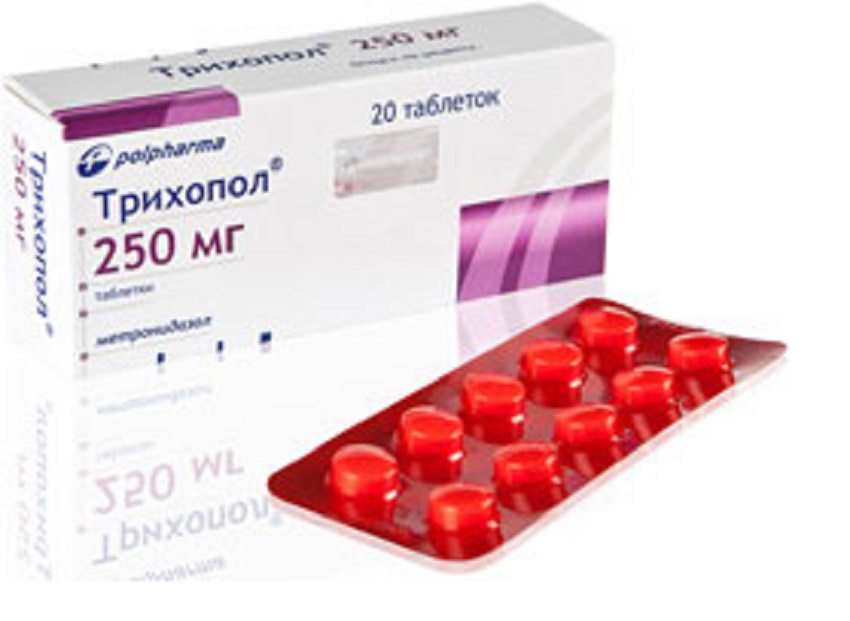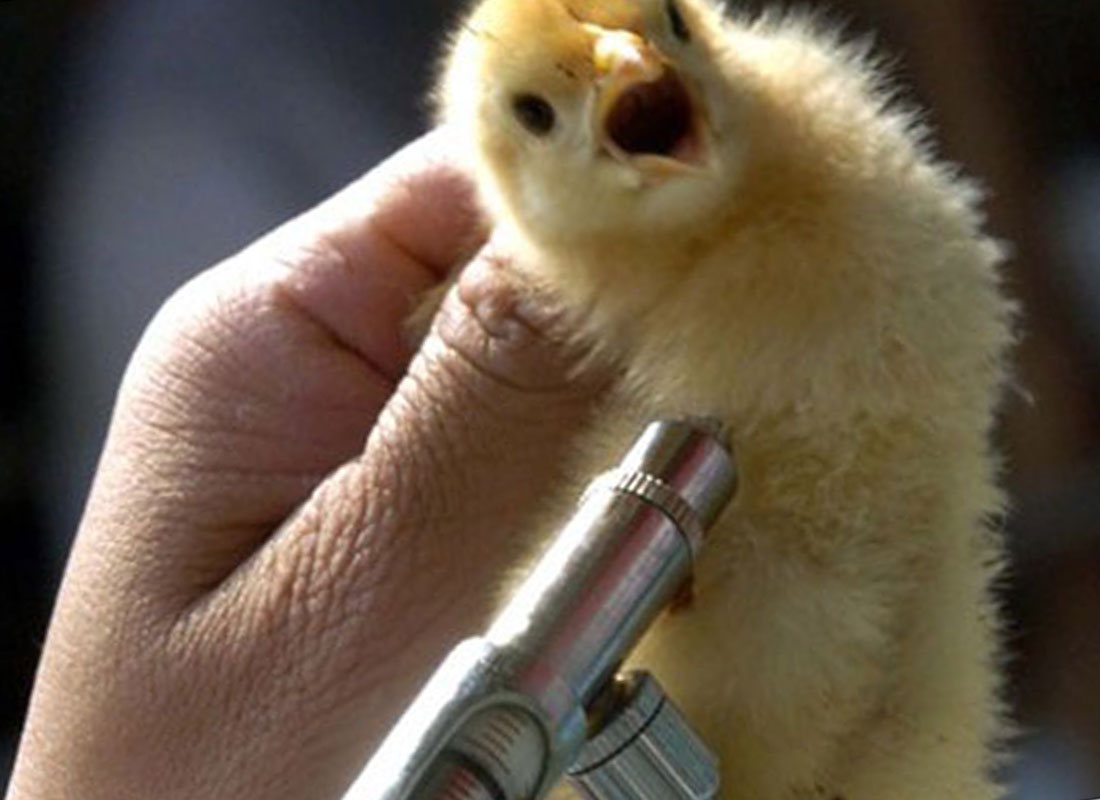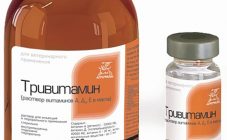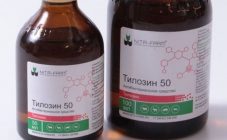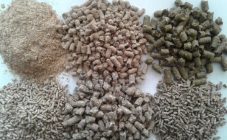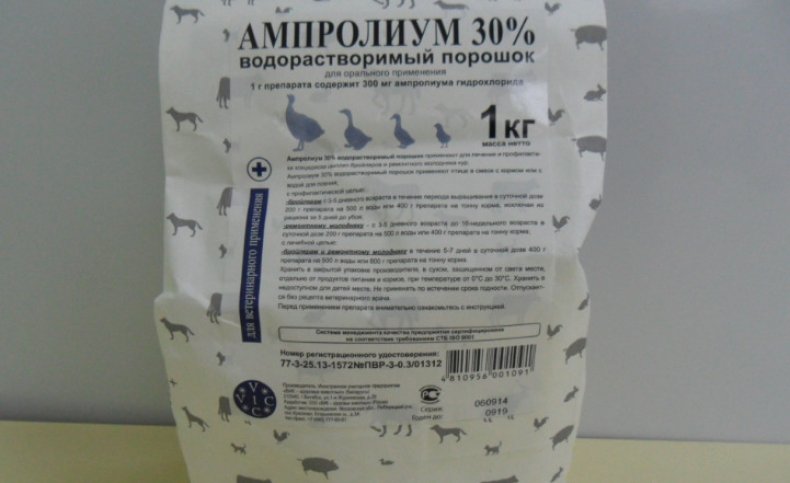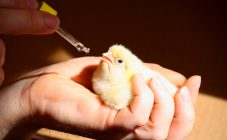Content:
When breeding chickens, in addition to the characteristics of keeping and feeding typical for the breed, it is necessary to maintain a suitable temperature and humidity in the chicken coop. It is important to clean and disinfect the house every few days to avoid infection. With the disease, the condition of the poultry significantly worsens, the quality of meat decreases and the cost of growing increases. However, the breeding of livestock almost never goes without diseases that can be fought with antibiotics.
About antiviral drugs for chickens
The use of antibiotics for chickens is appropriate for increasing productivity. An excessive amount of harmful microbes in the body of a bird leads to a significant decrease in growth rates, egg production and a deterioration in the quality of meat.
Part of the bacteria when drinking chickens in small doses can acquire resistance. Therefore, antibiotics are given to laying hens only with a quick release of residues from the body.
For the prevention of diseases with antiviral drugs, day-old chickens and laying hens are drunk before the start of egg production. If during this period the individual looks very bad, and the result is only one - slaughter, then it is absolutely impossible to eat its meat.
It will not be possible to do without the use of medicines when breeding and growing broilers and egg breeds. Medicines can be given with food or water. Moreover, the second option is preferable, since it is sometimes difficult for chickens to feed feed with a mixed preparation.
Some compound feeds already contain antibacterial components, so chickens can be fed with them as well. Both broiler chickens and pullets are particularly in need of such stimulant supplements.
Antibiotics for laying hens, broilers, chickens of a wide spectrum of action
In soldering birds of a particular age with medicine, there are nuances that the breeder should familiarize himself with in advance so as not to harm them.
Issuance of antibiotics to day old chickens
Soldering young stock is necessary to reduce the risk of mortality during rearing. In combination with antibiotics, vitamin and mineral preparations are used. Such soldering instead of individual processing has the following advantages:
- does not spend much time;
- every chick is protected. The ephemeral may refuse to eat, but will continue to drink;
- in dissolved form, mineral supplements and organic substances are more easily absorbed by the body.
The agent is introduced into the diet from the first days after leaving the egg according to the individual scheme given in the drug's instructions.
The first days of babies are recommended to be fed with specialized feeds, which contain components that counteract the spread of coccidiosis.
Soldering schemes:
- In the first 7 days of life, vitamin complexes and glucose-containing products are added to the nestlings' drinkers. After that, you can use antibacterial drugs for up to 5 days.
- From 1 to 5 days, antiviral drugs are added to the drinkers, from 6 to 11 - vitamin complexes. From two weeks of age, the addition of vitamins to drinkers is repeated for 3 days. After that, antiviral agents are again introduced into the diet. In the absence of coccidiostatics in the compound feed, baikoks is added.
Another option for drinking:
- on the first day, vitamins are given with the addition of glucose up to 20 g;
- in the second, in drinking bowls, dilute to 500 mg of tetracycline;
- the next two days add the same amount of levomycetin to the water;
- from 2 to 5 days they are drunk with drugs from the penicillin group;
- in the future, repeat fortification;
- strengthening the skeleton of a bird is carried out by adding calcium gluconate to the feed at the age of 5 days to one and a half months of age.
What antibiotics can be given to chickens:
- enrofloxacin;
- tylosin;
- thromexin.
All of these medications are available over the counter at any pharmacy.
Dispensing medicines to chickens for infection
Medicine for chickens from infection is applicable only if the diagnosis is accurately made, since the manifestations of many diseases are similar to each other (wheezing, flow from the nostrils, death on the legs, etc.). For a complete cure, it is necessary to establish from which group of bacteria or viruses the pathogens are.
Baytril, chloramphenicol, etc. are used for the prevention and treatment of infectious diseases.
Baytril is an enrofloxacin that belongs to the class of fluorinated quinolines. It is produced in a soluble form for injection and for addition to feed. It is applied as follows:
- For prophylactic purposes, Baytril is diluted in water in the proportion of 1 ml of the drug to 2 liters of water. It can be applied from the second day of the bird's life.
- For the treatment of acute infectious diseases of a bacterial and viral orientation, it is carried out as follows: on the first day, the bird is drunk with the addition of the drug in water at a ratio of 1: 2. Every next day, the amount of the drug in relation to water doubles, that is, 2 days - 100 ml of the drug per 100 ml of water, 3 - 200 ml of the drug in 100 ml, etc. The average duration of treatment is 3-5 days.
- If a bird is diagnosed with salmonellosis associated with mixed diseases, the scheme is similar. The course of treatment lasts 5 days or longer.
Levomycetin is a derivative antibacterial drug that destroys viruses, spirochetes. Can be applied to all farm animals. It is contraindicated to give chloramphenicol to individuals with diseased kidneys or liver. As an antibacterial agent it is used for salmonellosis, inflammation of the meninges, problems with the lungs and gastrointestinal tract. The application must take into account the age of the chickens. The dosage of the drug does not differ for different diseases.
Drinking courses:
- for prevention, chloramphenicol is used no longer than 3 days;
- young animals are given the drug three times a day, 3-7 mg per bird, duration - 1 week;
- adults should receive 20 mg per animal per day for up to 2 weeks.
Antibiotics for broilers of different ages
Domestic young broilers are most often susceptible to various diseases. The peculiarities of the breed - extremely fast growth and weight gain - cause a deterioration in thermoregulation, which is why they quickly overcool and become ill. Therefore, they must be given general strengthening drugs. Antibiotics for broiler chickens are used from 4 to 11 days. For treatment, universal remedies are used: trichopolum, furazolidone and other antibiotics for broiler chickens.
Trichopolum includes metronidazole. It is a means that acts on parasitic protozoa, affecting their membrane and destroying it. Trichopolum does not change the composition of the beneficial intestinal microflora, but it should be used with caution.
This can be done as follows:
- For prevention, the drug is added to dry food in proportions of 20 mg per 1 kg of live weight. The duration of the course is 5 days. Repeat every 14 days until one and a half months of age.
- With coccidiosis, the drug is diluted in heated water in a proportion of 0.1 g per 1 kg of live weight.Broiler chickens should be fed 3 times a day. The duration of the course is 10 days.
- With histomonosis, the proportion is 0.25 g per 1 kg of body weight. Everything else is the same as with coccidiosis.
- Trichomoniasis will require a dilution of the drug in a ratio of 25-50 mg per 1 kg of body weight. The solution is given to chickens for 2 days, then antibiotic therapy is repeated after 7 days.
Furazolidone is a broad-spectrum antibiotic for broilers. Destroys pathogenic microorganisms and helps to restore beneficial microflora. Can be used from 10 days of age. The dose of the substance is calculated based on the diagnosis.
How to feed young broilers and layers with this antibiotic:
- For prophylaxis, the agent is added to the feed or to the drinker. The dosage is 3 g of medicine per 1 kg of body weight. The course lasts 3 days.
- At the beginning of laying, it is used in the prevention of diseases in layers. It is necessary to introduce into the feed 5 g per 1000 hens. Duration up to 5 days.
- In the treatment of coccidiosis, rod-shaped bacteria are added to regular feed 2 times a day in a proportion of 2 mg per bird until one month of age. Older adults should receive 3 mg of the drug. The duration of the addition is from 3 to 9 days.
- For viral or bacterial infections, treatment takes up to 1 week. The proportion is 3 mg of substance per 1 kg of live weight. Repeat after 1.5 weeks.
Features of antibiotics for chickens
Antibiotics need to be soldered on birds, starting from a young age. At the same time, the risk of being affected by viral diseases is significantly reduced. Many adult chickens are chronically ill with coccidiosis or histomoniasis. And if this practically does not harm them, then the young may die in the event of an acute form of these diseases. Therefore, the use of antibiotics for chicks in the first days of life is essential for growth and development.
Suitable for this:
- penicillin;
- tetracycline;
- chloramphenicol;
- tylosin;
- thromexin.
Antimicrobial drugs remain in the body of a sick bird for a long time. Remains of drugs may come out a month after taking. This significantly impairs the quality of eggs, therefore, it is not recommended to eat the products of layers during antibiotic therapy.
To avoid such a situation, it is worth worrying about preventive soldering with antiviral drugs from the first days of chickens' life. If everything is done correctly, as described above, then the bird population will be healthy, and the meat and eggs will be delicious!
